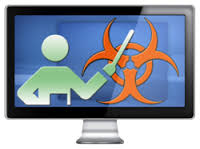|
A Lab Safety Success Story – The Elimination of Non-Essential Sources of Mercury

The IUPUI Laboratory Safety Committee (now known as the Chemical Hygiene Committee) adopted the laboratory Mercury Reduction/Elimination Policy in June of 2006 with the intent of ultimately working towards a mercury-free campus. Subsequent to the adoption of the laboratory safety policy, the IUPUI adopted a campus-wide mercury elimination policy as a Sustainability policy.
To read more about the successful elimination of mercury on the IUPUI campus please click here.

Training Requirements for Laboratory Personnel

If you are working in a laboratory on our campus IUPUI Environmental Health and Safety has several safety training courses available that are free of charge. We offer both instructor led classroom training as well as on-line training. Some of the training programs are required so please click here to see if your training requirements have been met and also learn more about what trainings are available for you.

MSDS Online and E-Training Guide

During the past year, you may have noticed several changes to EHS services on-line. This includes updates to both the EHS website, MSDS Online and the training interface. As with many transitions, some commonly experienced issues have been noticed. Because of this Mendy Foster, IUPUI Laboratory Safety Specialist, has put together a guide to using MSDS on-line and the updated training systems and some common troubleshooting tips.
I encourage you take a moment to explore this guide and update bookmarks to items such as MSDS Online and the Chemical Hygiene Plan.

The Impact of Laboratory Flooding
 The IUPUI campus has experienced a number of significant water intrusion events, commonly known as floods, over the past several months resulting in varying impact on laboratory operations. The origin of these events range from clogged building storm drains during heavy rains, to building heating/air conditioning equipment failures, to human error. As our campus continues to grow and the infrastructure ages, additional water intrusion events should be anticipated. The IUPUI campus has experienced a number of significant water intrusion events, commonly known as floods, over the past several months resulting in varying impact on laboratory operations. The origin of these events range from clogged building storm drains during heavy rains, to building heating/air conditioning equipment failures, to human error. As our campus continues to grow and the infrastructure ages, additional water intrusion events should be anticipated.
Do you know how to respond if a flood occurs in your laboratory? Please click here to find out more about preparing for and responding to laboratory water intrusion events in laboratories.

Biosafety Training Now Required for All BSL-1 and Higher Labs
 Biosafety Training is now required for all personnel working in BSL-1, BSL-2 and BSL-3 laboratories. Training records will be reviewed at the time of a lab’s annual biosafety inspection. A deficiency may be assessed at the time of inspection if individuals working in the laboratory have not completed Biosafety Training. To find the training, follow the instructions listed here. Personnel who have taken the Biosafety Training in the last five years do not need to retake the training. If you have any questions regarding this change or about how to register for the training, please send an email to the Biosafety Inbox at ehsbio@iupui.edu. Biosafety Training is now required for all personnel working in BSL-1, BSL-2 and BSL-3 laboratories. Training records will be reviewed at the time of a lab’s annual biosafety inspection. A deficiency may be assessed at the time of inspection if individuals working in the laboratory have not completed Biosafety Training. To find the training, follow the instructions listed here. Personnel who have taken the Biosafety Training in the last five years do not need to retake the training. If you have any questions regarding this change or about how to register for the training, please send an email to the Biosafety Inbox at ehsbio@iupui.edu.
|